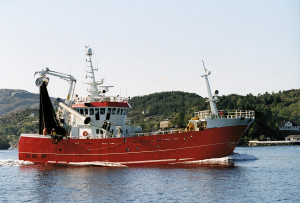A Europa legaliza sobrepesca
A sobrepesca na Europa vai ser legalizada estruturalmente. Esta é a consequência do Plano Plurianual para a Pesca no Mar Báltico cuja negociação foi concluída esta semana pelos países-membro da União Europeia e o Parlamento Europeu. O Partido para os Animais avisa que o combinado plano é contrário a combinações feitas anteriormente para acabar com a sobrepesca o mais tardar em 2020. “Este plano não somente legaliza a sobrepesca no Mar Báltico, mas indirectamente também no Mar do Norte e em outras águas na UE,” diz a eurodeputada Anja Hazekamp, que participou nas negociações em nome do Partido para os Animais.

As negociações sobre o plano para a pesca no Mar Báltico demoraram meses e foram extremamente difíceis. Os negociadores do Parlamento Europeu pleitearam o fim da sobrepesca o mais tardar em 2020. “Reduzir a pesca até um nível sustentável é necessário para evitar que nossos mares acabem sem peixes. Sete em oito espécies de peixes no Mar Báltico estão em perigo por causa de sobrepesca e outros factores. O Mar Mediterrâneo está seriamente em perigo e também no Mar do Norte as populações de peixes estão em apuros. O Plano Plurianual para a Pesca no Mar Báltico poderia ter sido uma boa oportunidade para começar a combater a sobrepesca,” conforme a Hazekamp.
Entretanto, a Holanda e outros países-membro da UE se negaram a aceitar uma limitação sustentável da pesca durante as negociações. “Os países-membro da UE continuamente estipulavam excepções para no final das contas poderem apanhar mais peixes. Uma maioria dos negociadores mudou de ideias sob a forte pressão dos países-membro e da Comissão Europeia. As consequências serão grandes e não se limitarão ao Mar Báltico,” assim avisa o Partido para os Animais, que não concordou com o negócio da sobrepesca.
“O plano para o Mar Báltico servirá como ponto de partida para o Mar do Norte, o Mar Mediterrâneo e outras águas europeias. Com isso uma estrutural sobrepesca será legalizada na Europa,” diz a Anja Hazekamp.
Ainda existe uma única oportunidade para deter a legalização da sobrepesca. A totalidade do Parlamento Europeu ainda deve aprovar o plano numa votação plenária com todos os 751 membros.
O grupo parlamentar do Partido para os Animais na Câmara Baixa questiona o procedimento da Holanda durante o estabelecimento do plano para o Mar Báltico. O deputado Frank Wassenberg fez perguntas parlamentares ao secretário de estado Van Dam sobre o papel da Holanda durante as negociações.
Overfishing in Europe will be permanently legalised. This is due to the Multiannual Plan for Fisheries in the Baltic Sea on which a deal was concluded between the EU member states and European Parliament this week. The Party for the Animals warns that the agreed plan is in defiance of earlier commitments to put an end to overfishing before the year 2020. “This plan will not only legalise overfishing in the Baltic Sea, it will consequentially make overfishing in the North Sea and other European waters legal as well,” says MEP Anja Hazekamp, who took part in the negotiations on behalf of the Party for the Animals.

The months of negotiations on the plan for fisheries in the Baltic Sea advanced with difficulty. The EU negotiating team called for an end to overfishing before the year 2020. “Gradually reducing the level of fishing to sustainable levels is absolutely necessary to prevent our seas from becoming completely fished out. Seven out of the eight fish species living in the Baltic Sea are endangered due to overfishing and other factors. Fish populations in the Mediterranean Sea as well as in the North Sea are under serious threat. The multiannual plan for the Baltic Sea was our chance to start tackling the issue of overfishing,” according to Hazekamp.
However, as the negotiations proceeded, the Netherlands as well as other EU countries refused to accept a sustainable fishing limit. “EU member states kept negotiating exceptions which would allow them to fish over the set limits. A majority of the negotiating team changed their minds due to great pressure from the member states and European Commission. This will have major consequences which will not be confined to the Baltic Sea,” warns the Party for the Animals, which did not support the overfishing deal.
“The Baltic Sea Plan will also serve as a starting point for the North Sea, the Mediterranean Sea and other European waters. It will thereby legalise structural overfishing in Europe,” says Anja Hazekamp.
There is one final chance to stop the legalisation of overfishing. The plan still has to be adopted by the entire European Parliament in a plenary vote with all 751 members.
The Party for the Animals´ Lower House faction questions the role that the Netherlands has played in the realisation of the Baltic Sea Plan. MP Frank Wassenberg has posed questions in Parliament to State Secretary Van Dam about the input from the Netherlands during negotiations.